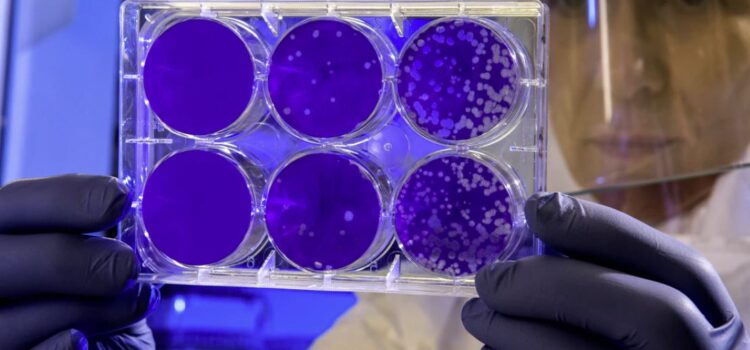

This article is an excerpt from the Shortform book guide to "Gut" by Giulia Enders. Shortform has the world's best summaries and analyses of books you should be reading.
Like this article? Sign up for a free trial here .
What is the role of bacteria in the gut? How does the gut microbiome help keep your body healthy?
Most of the bacteria in your body live in your gut. While scientists are still discovering everything they do, it’s clear that these bacteria serve several important functions, including keeping us healthy and providing us with nutrients.
Keep reading to learn about the role of bacteria in the gut.
The Role of Bacteria in the Gut
Our bodies are filled with and covered in microbes—tiny organisms that can only be seen through a microscope. Enders claims that 90% of the cells in our bodies are microbes. Taken together, these microscopic organisms form what scientists call your microbiome, an ecosystem of particles operating inside your body.
Almost all of the bacteria in your microbiome live in your gut. Enders puts the number at 99%, with more than 1,000 different species present.
(Shortform note: New evidence has called into question some of the numbers that Enders uses in this section. A recent study suggests that microbes constitute just 57%of our cells, not 90% as Enders claims. Furthermore, other estimates suggest that there are 300 to 500 different species of bacteria in the gut, not 1,000.)
Let’s take a closer look at the roles of bacteria in our gut.
Function #1: Training the Immune System
According to Enders, the bacteria in your gut train your immune system, helping you to fight off infections, viruses, and bad bacteria. She explains that your gut holds microbes in the mucus membrane, an area that prevents them from being absorbed through the gut wall. This ensures that bad bacteria won’t impact other parts of the body and cause sickness.
Enders describes the mucus membrane as a testing ground for the immune system. When your immune cells in the mucus membrane come in contact with the microbes held there, they learn to distinguish the good bacteria from the bad. In the future, this training will help your immune cells kill the bad bacteria while leaving the helpful ones alone in other parts of the body.
We Need Further Research on Bacteria and the Immune System
Enders’s discussion of the role of bacteria in the gut and immune system is somewhat vague. This is likely because our understanding of this topic is still incomplete.
It’s generally accepted that bacteria impact our immune response and train our immune system. That said, most of the studies that suggest a link between the microbiome and the immune system have been conducted on animals, not humans, including a study that found that mice without helpful gut bacteria were far more likely to develop diseases.
Even several years after the publication of Gut, scientists are uncertain about the mechanism behind the gut-immune system connection. One 2020 study highlights areas for further research, including how we develop immunity as infants, the connection between the microbiome and specific diseases, and the exact function of specific bacteria in the gut.
Function #2: Digesting Food and Producing Nutrients
In addition to training the immune system, bacteria’s role in the gut is to also help in the digestive process. Your bacteria make your gut more efficient by breaking down foods that your body can’t process alone. Enders explains that sometimes your gut lacks the enzymes to digest a particularly complex substance, such as lactose or plant starches. Your gut bacteria can produce these enzymes to help you break down and absorb the food. In this way, according to Enders, your microbes provide you with about 10% of your nutrition.
The Many Uses of Enzymes
Enzymes are proteins that serve as catalysts in our bodies. This means that they initiate and control the speed of chemical reactions. In the digestive system, they speed up the chemical reactions that allow us to break down certain foods.
In recent years, bioengineers have become increasingly interested in using enzymes outside of our bodies. For example, scientists have recently engineered enzymes from gut bacteria to produce biofuel (fuel made from plants such as corn). These enzymes can break down cellulose, which is an important and often costly step in manufacturing biofuel.

———End of Preview———
Like what you just read? Read the rest of the world's best book summary and analysis of Giulia Enders's "Gut" at Shortform .
Here's what you'll find in our full Gut summary :
- How your digestive system works and why it’s important to keep it healthy
- How tiny organisms in your intestines influence your immune system (and possibly your mood)
- What your appendix actually does






